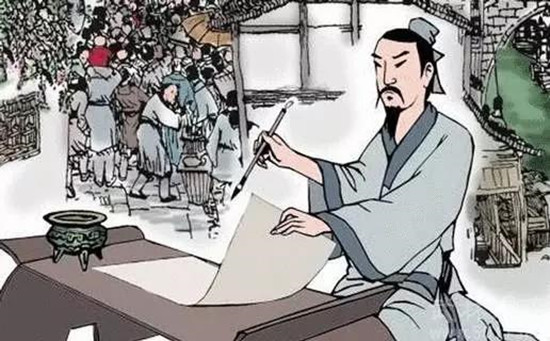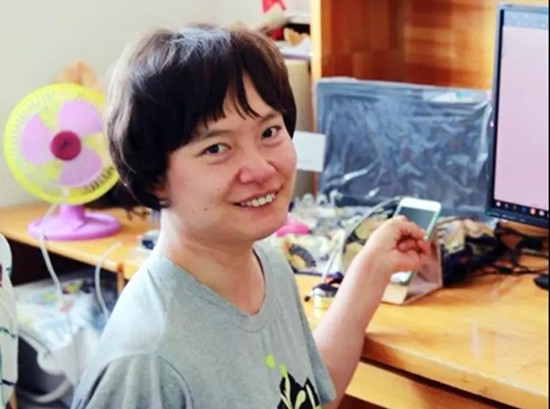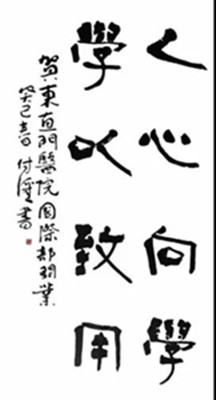《胡·译》,非胡译。译路漫漫,在翻译行业,我摸爬滚打了十余年,在双语表达和文化知识上仍存在很多不足。文中如有谬误,还望各位多多指教。希望借助“译路通”这个平台同广大朋友和老师一起学习,共同进步。
“Who” translates,as my surname homophonously and sometimes humorously connotes, is not a somebody. On the tedious long journey of translation, I still have a lot of room for improvement in terms of bilingualism and cultural knowledge despite more than 10 years of persistent efforts in the field. If you find anything amiss in my writings, please feel most welcome to point it out. I expect to learn with you all through Yi Lu Tong.
距2019年下半年CATTI考试不足一个月了,相信大家正在经历备考的煎熬。然而,转念一想,我们为何苦战题海?貌似某铺的“抢红包”游戏更轻松!
It’s less than a month away from the semiannual CATTI session. All of you, I believe, are toiling hours away in preparation. But hang on. Why are we tiring ourselves out in an endless sea of test topics ? The “hong bao snatch” game in that you-know-what online store seems way easier!
对于这个问题,我想到了一个历史人物。他不是头悬梁、锥刺股的主人公孙敬和苏秦,也不是凿壁偷光的匡衡。那他是谁呢?
Now I think of someone who might have had a few words to say about this question. I am not referring to Sun Jing, Su Qin or Kuang Heng, the best-known examples of a studyholic spirit in ancient China. If not, who is it then ?
左思,字泰冲(亦作太冲),西晋人。据史料记载,左思幼年相貌丑陋,笨嘴笨舌,琴棋书画一样也学不好,经常挨老师责骂,是典型的古代版“学渣”,甚至连他的父亲都对他不报什么希望了,对朋友叹息道:“我这儿子比我年轻时差远了。”
It‘s a man of the West Jin Dynasty named Zuo Si and styled as Zuo Taichong. According to historical records, he was typically an ancient version of what is depreciatingly known as "academic slag" in China today. He was neither good-looking nor fluent in speech when he was young. Very little did he show talent in the fancies of men of letters, namely stringed music, chess, calligraphy and painting. This often got him into trouble with the tutor. Even his father had given up hope for him and sometimes sighed to his friends, "My son is not remotely as good as when I was his age."
左思在一片嘘声中成长,有时也觉得自己不是学习的料,直到有一天父亲对朋友又说起了他那不争气的儿子,恰巧被小左思听到了。
The young Taichong grew up with so much negativity that sometimes he did wonder if he truly had what it took to fare well in the academic environment, until one day he overheard his father complaining to a friend about his “disappointing son.”
得知父亲对他的看法,左思恍然醒悟:虽然自己脑袋笨,反应慢,弹不好古琴,书法也写不好,却还能识字,也渴望领悟文中深意,为何不继续更加努力地学习呢?
What an epiphany it was for Taichong as he thought to himself : I am slow and can’t do well in music and calligraphy, but I can read and I love to decode the messages hidden between the lines. Why not study harder ?
从此以后,好强的左思心无旁鹜,专心治学,虽然史书上没有说他是否达到了“自虐“的境界,但他持之以恒,不耻下问,渐渐在文学方面展露才华,起初只用一年时间便写成了《齐都赋》。可惜的是,《齐都赋》部分内容现在已经失传了。
From then on, the strong-minded Taichong devoted his mind to learning, though no historical reference suggests that he became a self-torturing studyholic. He persevered, never ashamed to ask and learn from those who were then considered as his inferiors. Slowly his knack for literature started to arise, first from his long poem entitled “qi du fu (Ode to the Capital of the State of Qi),” which he finished only within one year. Some parts of the manual, unfortunately, had been lost.
后来,在左思二十三岁的时候,他的妹妹左棻(fēn)被选为贵人,所以全家迁居洛阳。
Later, when Taichong turned 23, his sister was selected to the court as a concubine. As such, all his family moved to the capital city of Luoyang.
也就在这时,他开始动笔写大名鼎鼎的《三都赋》(所谓“三都”,指的是魏都、吴都、蜀都)。
It was around this time that he started to write the famous “san du fu (Ode to the Capitals of the Three Kingdoms of Wei, Shu Han and Wu).”
期间,他像走火入魔一般。家门口,庭院里,厕所里,都摆放着笔和纸,偶尔想出一句,就赶紧记录下来。
And how he was obsessed with it! He had stationery laid by the gate, in the courtyard, and in the bathroom, so that he could jot down whatever came to his mind.
他还到处拜访名士,虚心请教。他觉得自己见识浅陋,又请求担任秘书郎一职,掌管图书经籍,相当于现在的图书馆管理员,这样就可以接触到很多前辈的著作了。
He also traveled around to visit renowned scholars and humbly learn from them. Feeling short of insight and knowledge, he applied for the position of Book Keeper, a rough equivalent to librarians today, so that he could access ancient classics and read as much as he’d like.
一篇《三都赋》,前前后后花了他十年的时间,但因自己没什么名气,所以作品起初并没有引起人们的重视。
This composition took him ten years to finish. Initially, his work was poorly recognized given his low social status.
一个偶然的机会,他遇到了当时在洛阳的名家皇甫谧,赶忙请他审阅这篇《三都赋》。皇甫谧读后赞不绝口,为这篇赋写了序。
Then, by a stroke of luck, he met the prestigious scholar Huang-fu Mi in Luoyang and wasted no time in presenting his work. After reading it, the scholar left him with profuse praise and a preface.
之后,《三都赋》很快流传开来,引发“三都赋”热。豪门贵族争相传阅抄写(那个时候印刷术还未发明),导致京城洛阳的纸张供不应求,价格大涨。这便是“洛阳纸贵”典故的由来。
Soon word spread and “san du fu” became a sensation; it became so popular that rich and aristocratic households in the capital lined up to copy the manual (Printing had yet to be invented at the time), causing a shortage of paper supply and a spike in its prices. This is the origin of the Chinese four-character idiom, 洛阳纸贵 luò yáng zhǐ guì, a popular reference to one’s work being all the rage.

左思并没有被一时的功利冲昏头脑,他仍孜孜不倦地潜心研读经典,写下有名的《咏史诗》、《娇女诗》,其语言质朴凝练。后人辑有《左太冲集》。
Fortunately, an upsurge of fame and gain didn’t go to Taichong’s head. He continued to be a patient and diligent learner and went on to create more unfading masterpieces, such as “yong shi shi (Poem on History)” and “jiao nue shi (Poem on My Dearly Beloved Daughters),” in an unpretentious, pithy language. His works were compiled in “zuo taichong ji (A Collection of Zuo Taichong’s Works) by later generations.
在仕途方面,他从小吏开始,一步步做到了晋武帝朝中的侍御史、太原相、弋阳太守等高职。
On the bureaucratic ladder, he also took one firm step after another, from the lowest rung of being a petty official all the way up to some high court positions.
从左思的故事中,我们应该领悟到什么?是他勤奋上进的精神?还是他日后功成名就?
What is it we should look at in Taichong as a learner ? Is it his hard-working and strong spirit ? Or his belated success ?
都不是。左思的人生经历折射出治学的本质。
Neither. From his experience I see the essence of learning.
中国儒家思想将治学分为八个层次:格物、致知、诚意、正心、修身、齐家、治国、平天下。探究万物之规律,掌握知识之本源,发于精诚,修身养心,整治家庭,报效祖国,乃治学之本。一切外在的功利都是表象的产物,而不应该被当作治学的真正的目的来对待。
The Confucian thought recognizes eight essential levels of learning. All starts with human understanding of natural phenomena so that knowledge can be expanded to the fullest, so that sincere thoughts can be achieved, so that the heart can be rectified, so that character can be cultivated, so that households can be well-regulated, so that the state can be righteously governed, so that peace can be brought to the world. All utilitarian motives generated thereby should not be treated as the true purposes of learning.
培根在《论读书》一文中指出,”读书足以怡情,足以傅彩,足以长才。其怡情也,最见于独处幽居之时;其傅彩也,最见于高谈阔论之中;其长才也,最见于处世判事之际。练达之士虽能分别处理细事或一一判别枝节,然纵观统筹、全局策划,则舍好学深思者莫属。”(王佐良 译)
In “Of Studies,” Francis Bacon wrote: “Studies serve for delight, for ornament, and for ability. Their chief use for delight, is in privateness and retiring; for ornament, is in discourse; and for ability, is in the judgment, and disposition of business. For expert men can execute, and perhaps judge of particulars, one by one; but the general counsels, and the plots and marshalling of affairs, come best, from those that are learned.”
从我国的集体家国情怀,到西方的个人能力提升,不同文化对治学的认识趋于一致。回到当下的CATTI备考话题,考试成绩固然是我们为之奋斗的目标,但通过考试提高自身翻译水平才是关键。一味赌题、猜题则违背了考试设立的初衷,同时也有悖于治学精神。最后预祝大家考试顺利,学以致用,向着心中的理想迈进!
From the Chinese affective notion of home-state to the Western emphasis on individualism, different cultures tend to agree on why learning should be pursued. Back to the topic of CATTI preparation, although a good test score seems much desirable, what lies at stake is the process in which candidates get to improve their bilingual skills. Contradicting would be the idea of leaving it to chance or studying only for the test. Such behavior would also lead to a shameful failure to honor the learning spirit. May you pass the test, put what you have learned to practice, and march toward your true pursuit in life.




